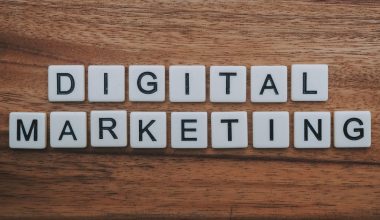Organizing an event is a significant undertaking, and its success relies heavily on effective event marketing. A creative event marketing plan can make all the difference in driving attendance, generating excitement, and ensuring a memorable experience for attendees. In this article, we will explore strategies and tactics to elevate your event through a well-crafted marketing plan. By implementing innovative and engaging marketing techniques, you can reach your target audience, create buzz, and maximize attendance at your event.

1. Define Your Event’s Unique Selling Points
To create a compelling event marketing plan, it is crucial to identify and highlight your event’s unique selling points (USPs). What sets your event apart from others in the industry? Is it a renowned keynote speaker, exclusive workshops, or interactive experiences? Determine the key features that make your event special and emphasize them in your marketing efforts. Showcase the value proposition and benefits attendees can expect, such as networking opportunities, educational content, or entertainment. By clearly communicating the USPs, you can attract the attention of your target audience and pique their interest in attending.
2. Develop a Comprehensive Marketing Strategy
Craft a comprehensive marketing strategy that includes a mix of online and offline channels to reach your target audience effectively. Utilize digital marketing tactics such as email marketing, social media promotion, content marketing, and search engine optimization (SEO) to create awareness and generate interest. Additionally, consider traditional marketing methods like print advertisements, direct mail campaigns, and partnerships with relevant organizations or influencers. Align your marketing efforts with your target audience’s preferred communication channels to maximize engagement and visibility.
3. Engage with Compelling Content
Create engaging and informative content to promote your event. Develop a content calendar that includes blog posts, articles, videos, podcasts, or webinars related to the event’s theme or industry. Share valuable insights, expert tips, or behind-the-scenes peeks to capture the attention of your target audience. Use storytelling techniques to create compelling narratives that resonate with your audience and build anticipation. Encourage user-generated content by organizing contests, giveaways, or interactive campaigns that involve attendees or potential attendees. Compelling content not only creates excitement but also establishes your event as a reputable and valuable resource within the industry.
4. Leverage Social Media
Social media platforms are powerful tools for event promotion and engagement. Create dedicated event pages or hashtags to centralize conversations and facilitate discussions. One of the best ways to elevate your social media marketing strategy is to regularly post engaging content, including event updates, speaker spotlights, attendee testimonials, and teaser videos. Encourage user-generated content by organizing photo contests, live streams, or interactive polls. Collaborate with industry influencers or partner with relevant brands to extend your reach and tap into their existing audience. Utilize social media advertising options to amplify your message and target specific demographics. By leveraging social media effectively, you can create a buzz around your event and generate word-of-mouth promotion.

5. Implement Influencer Marketing
Influencer marketing can significantly impact the success of your event. Identify influencers or industry experts with a relevant and engaged following and collaborate with them to promote your event. This can include guest blog posts, social media takeovers, or endorsements. Leverage the influencer’s credibility and reach to increase awareness and drive attendance. Consider offering exclusive discounts, VIP experiences, or affiliate programs to incentivize influencers and encourage them to actively promote your event. By tapping into the influencer’s audience, you can expand your reach and attract attendees who trust and follow their recommendations.
6. Utilize Email Marketing
Email marketing remains a highly effective strategy for event promotion. Develop a segmented email list comprising potential attendees, past attendees, industry professionals, and partners. Craft personalized and targeted emails that highlight the benefits of attending your event. Send regular updates, early-bird discounts, speaker announcements, and exclusive content to nurture interest and maintain engagement. Implement a strong call-to-action in your emails to encourage recipients to register or share the event with their network. Leverage email automation tools to streamline the process and optimize your communication efforts.
7. Implement Gamification and Interactive Elements
Incorporate gamification and interactive elements into your event marketing strategy to create excitement and engagement. Consider organizing contests, quizzes, scavenger hunts, or interactive polls that involve potential attendees. Award prizes or exclusive experiences to winners, creating a sense of anticipation and reward. Additionally, leverage augmented reality (AR) or virtual reality (VR) experiences to offer a unique and immersive preview of what attendees can expect at the event. By incorporating gamification and interactive elements, you can increase engagement, foster a sense of community, and generate buzz around your event.
A creative event marketing plan is essential for elevating your event and driving attendance. By defining your event’s unique selling points, developing a comprehensive marketing strategy, engaging with compelling content, leveraging social media, implementing influencer marketing, utilizing email marketing, and incorporating gamification and interactive elements, you can create a buzz, attract your target audience, and ensure a successful and memorable event.





